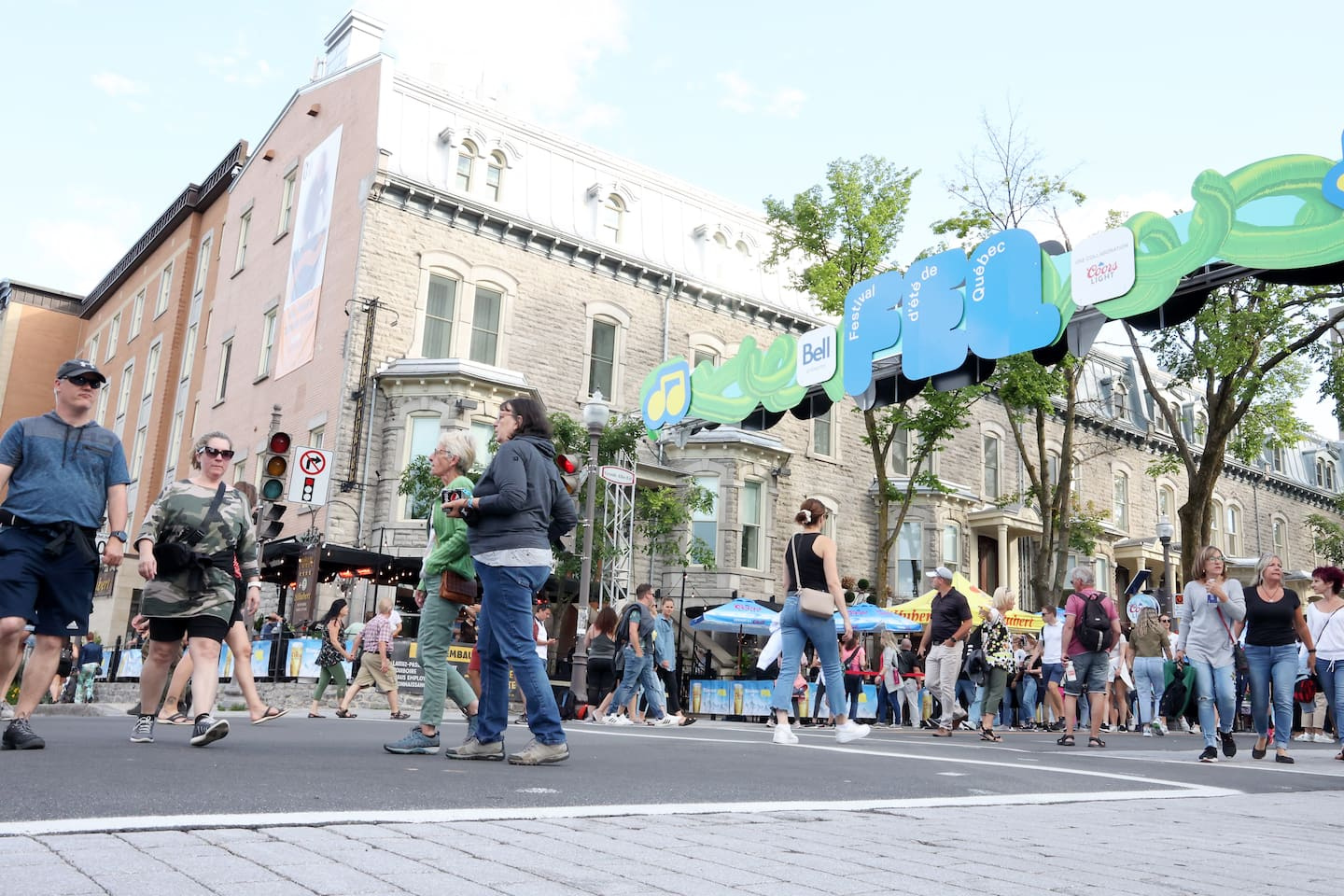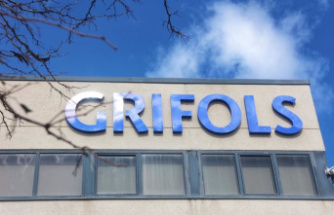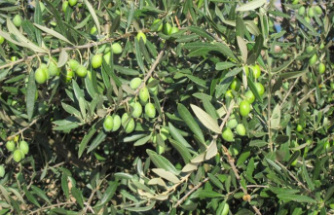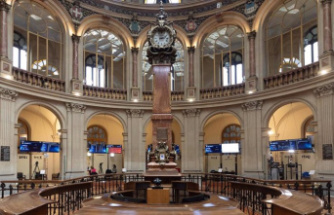The main festival road will be busy again this summer in Quebec, to the great pleasure of festival-goers, but also of the entire ecosystem of these vital events for several regions of the province.
• Read also: Resumption of festivals in Quebec: 15 unmissable events to savor the summer
• To read also: Trip to the gourmet festivals!
After two long years undermined by the pandemic and the restrictions that accompanied it, now festival organizers can put the pedal back to the floor to offer “normal” editions to the four corners of the province.
The Journal now offers you a list of festivals to keep, where all the events to put on your agenda are listed.
And to see the enthusiasm in the ticket offices in recent weeks, we have to admit that the public is impatient to find these events that many consider to be “an integral part of summer Quebec” (see other text below).
“There are several that are already full. […] There is really an appetite to get together, ”rejoices Patrick Kearney, president of Refrain, a group of independent regional festivals.
« Mine d’or »
The return of festivals will give a good boost to the ecosystem around them in all regions.
From technicians who worked little during the pandemic, to restaurants that were forced to close, to local accommodations and businesses, the economic fallout will benefit many people.
"It's a gold mine," says the mayor of Baie-Saint-Paul where Le Festif will be held! July 21-24.
“Everything is already full in the accommodations, everything is sold out for tickets. This is major for us,” says Michaël Pilote.
The example of the Festive! is convincing. The four-day event generates more than $4 million in economic spinoffs in Charlevoix, estimates the management of the event.
“We tend to overuse sometimes when we talk about benefits, but in the case of festivals, it is economically important and relevant,” underlines Paul Arseneault, professor at UQAM specializing in tourism.
Among the big players in the industry, a 2018 study by the Regrouping of major international events (RÉMI) established the value added to the Quebec economy by the 17 member festivals at $291 million.
Inseparable
And the scenario can apply almost everywhere in Quebec. Several regions are even so linked to their festival that the two have become inseparable.
“Across Quebec, cities have a branding linked to their festival. If I tell you Saint-Jean-sur-Richelieu, we automatically think of hot air balloons. Everyone knows where Petite--Vallée is thanks to the Festival en chanson,” notes Martin Roy, President and CEO of RÉMI.
This reality is strong for destinations that are “put on the map” by their festival.
AN IMPORTANT PART OF THE DNA OF SUMMER QUÉBEC
The last two years have dispossessed Quebecers of part of their DNA by depriving them of several festivals, observe the organizers and the experts. This is why this 100% return was so long awaited.
We sometimes laugh about it, but we are hardly exaggerating when we say that each municipality, each corner of the country, has its festival.
Whether it is very large or very small, that is not the important thing, it is above all to come together that matters.
And there's a reason for that, says a tourism expert.
“Quebecers experience winter and when the good weather finally arrives, they want to be outside, they want to celebrate, they want to see their friends, they want to entertain,” analyzes Paul Arseneault, marketing professor at UQAM.
“Festivals really enliven our communities and we realized that when we were deprived of them for two years. »
Celebrate and share
A quick search in the “Holidays and Festivals” section of the Bonjour Québec platform of the Ministry of Tourism yields 247 results for the summer season only. Music, arts and crafts, dance, beer, sports, gourmet pleasures, every Quebecer can find what they are looking for.
"It's part of the collective DNA. It's in our way of being to celebrate, to share, to show off, and it's quite typical, ”explains François-G. Chevrier, General Manager of Événements Attractions Québec, an organization representing Québec events and festivals.
"I don't have any figures at hand, but in my opinion, in proportion to the number of festivals per inhabitant, we are certainly not far from being world champions," he adds, laughing. .
Faithful to appointments
It is this propensity to party, to have a good time, which makes organizers and experts say that even after two years “out of sight, out of mind”, festival-goers will be there this year.
"We've all thought about it. We all wondered if people were going to be back, that's for sure. But there, we realize that ticket sales are going well everywhere. We were at a stage where we were all so disgusted that we can't wait to find our events, ”explains Patrick Kearney, president of the Le Refrain event group and general manager of the Santa Teresa festival.
Restaurants, accommodation, local businesses: everyone will benefit from the great return of festivals
Many merchants and companies will be happy to see thousands of festival-goers arrive in their part of the country in this summer, which is back to normal. The benefits for Quebec will be counted in the hundreds of millions of dollars.
Tadoussac kind of kicked off the season with its Festival de la chanson from June 16 to 19. The mayor admits without hesitation, the return of the event has been good.
"We don't have the figures yet, but the economic benefits are approaching one million," says Richard Therrien. For us, this is the big event of the summer season. »
And the impact is felt all around.
"It's important because these are dates that are not yet in the tourist season, so it helps to stretch the season. We were full,” said Tina Tremblay, General Manager of Hôtel Tadoussac.
Big spinoffs
In the MRC of Mékinac, the return of the Festival Western de St-Tite will also be welcome.
"It's $45 million in benefits," says Anne-Marie Lemire, deputy general manager of the event.
“It is certain that it will do good for the local and regional economy. It is the entire ecosystem, hotels, restaurants, local merchants, all will benefit from the return to full capacity, from the arrival of 600,000 visitors over the 10 days of the event. »
According to the mayoress of Drummondville, Stéphanie Lacoste, the calculation of the benefits of tourism spending is on average $225 per night, multiplied by all of the approximately 250 festivals and events that take place in the province during the summer season, the benefits are majors.
And it is really all the communities that benefit from the vast network of Quebec festivals, assures the president and general manager of Événements Attractions Québec.
“In the regions, the impacts are perceptible for the entire business community. There are all kinds of indirect effects. This is as true for the grocery store where people stop to buy stuff, as for the catering and service offer, as for the gas station where festival-goers fill up before leaving. It fills campsites, hostels, hotels, it visits craftsmen, ”notes François-G. Goatherd.
Government support
And after two difficult years of the pandemic, industry stakeholders unanimously welcomed the government's decision to increase its financial support for festivals.
This decision will probably have allowed some communities to save their event and make sure to reap the benefits this year to get back on track.
“The post-pandemic stimulus effort helps us with inflation and labor issues. It allowed little extras in the programming that will attract people, ”observes Martin Roy, president of the Regroupement of major international events.
► Quebec announced in March a $15 million increase in the assistance program for festivals and tourist events, which rose to $35 million for 2022.
LABOR SHORTAGE AND INFLATION COMPLICATE THE TASK
If there is a shadow in the picture of this great return of festivals, it is the issues related to the shortage of labor and inflation, which come to put a spoke in the wheels of the organizers.
Recruitment difficulties are great everywhere, but they are multiplied for one-off events, which often take place over a short period.
“It is currently a challenge to attract temporary workers,” explains François-G. Chevrier, General Manager of Événements Attractions Québec.
Compete in Ingenuity
The organizers must therefore compete in ingenuity to succeed in attracting the necessary workforce as well as volunteers.
Several festivals also offer accommodation and access to shows to convince them to get involved.
"Since accommodation is limited in Baie-Saint-Paul, many people rely on volunteers to find a place to sleep," says Clément Turgeon-Thériault, manager of the Festif!, which has 850 volunteer shifts to fill. during his event, which represents work for 350 people. "That's the heart of our event," he says.
The difficulties are even greater when sections of the population, such as young people or retirees, are increasingly drawn into the labor market, which deprives festivals of relying on them as volunteers.
“Young people aged 14-15 who were available before, they are no longer there. Today, they are all involved in restaurants and others at that age, ”observes Patrick Kearney, CEO of the Santa Teresa Festival and president-director of Refrain.
15% to 20% more expensive
And like everyone else, festivals are not immune to inflation.
According to the Grouping of major international events, to hold an edition equivalent to what was done “pre-pandemic”, it now costs 15% to 20% more expensive.
“It is clearly a challenge and even more so in the regions. Have a mobile stage delivered to Petite-Vallée, the truck, it runs on gas and the price of gas has increased like the rest,” says Mr. Kearney.
No financial distress
Fortunately, for the moment, there is no sign of financial distress for Quebec festivals, but we will still have to wait until the end of the season to take stock.
“Inflation has hurt more than we thought, but we have no warning signs, no one telling us that we are going into the wall. But we have several signs of caution, ”says François-G. Goatherd.
The impressive power of attraction of festivals even leads tourists to settle in the host cities
Festivals serve as a calling card for many regions, attracting visitors they would otherwise not have reached. And in some cases, these tourists fall so much in love that they choose to settle there permanently.
This was the case of Montrealer Pierre-Laurent Salin of L'Étoile, who, after a visit to the Festif! of Baie-Saint-Paul in 2019, fell in love. Six months later, he settled in the region.
“When I arrived here, I had never projected this possibility. I arrived as a tourist,” recalls the adopted Charlevoisien, seduced by the people and the festival.
“The festival makes us discover the region through the choice of sites and suppliers. And it looked like me. »
In the months following the 2019 edition of the festival, Mr. Salin of L’Étoile already knew that his heart had remained in Baie-Saint-Paul. And his heart definitely fell on it when, as a volunteer at the Festif!, he found love in the person of Anne-Marie Dufour... co-founder of the festival!
“As they say, everything is in everything. It's a strange gift, but it will have been in many respects the best decision I could make, "he says.
Selling quality of life
If everyone does not necessarily find love there, the speakers who confided in the Journal are unanimous, the festivals have this strong power of attraction for varied clienteles who would not stop in town without this pretext.
Long recognized as the break between Montreal and Quebec, Drummondville is now taking advantage of the vitality of its events to make itself attractive.
“Our companies, our business people use this energy that events bring to sell the city, to sell the quality of life that can be found there. It helps to attract workers without a doubt, ”said the mayor, Stéphanie Lacoste.
The return to the regions of the past two years, which has been driven by the rise of teleworking, is also no stranger to these constant recruitment efforts.
Any tourist who stops in town can become a potential resident if they fall under its spell.
And even if they do not settle permanently in the city, festival-goers who discover the different regions of Quebec are more likely to come back later.
Future customers
Initially known for its art galleries and panoramas, the Baie-Saint-Paul region has opened up to a different clientele since the birth of the Festif! a dozen years ago.
“The region is now making itself known to 18-35 year olds, who are a clientele of the future,” insists the festival’s CEO, Clément Turgeon-Thériault, specifying that 75% of the traffic comes from outside of Charlevoix.
“The Festive! is now part of our DNA”, adds the mayor of the place, Michaël Pilote.
“It brought other types of tourists, people who came for the Festive! and who chose to return later. It broadened our horizons. »
Tourism in Abitibi
"We also see it with the Emerging Music Festival in Rouyn-Noranda," says Patrick Kearney, president of Refrain, which brings together regional independent festivals.
“We bring people to Abitibi in September, even though it may not be the first destination that usually comes to people's minds. »













